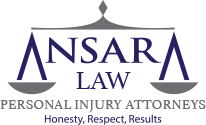Dangerous and Defective HIV / AIDS Drugs
For many years, a diagnosis of HIV/AIDS was a death sentence. Advances in medicine over the last three decades has transformed HIV infection from a fearsome terminal illness into a chronic disease that can be managed with drug treatment. One of the companies on the forefront of developing those drugs was Gilead Sciences, Inc.
However, the company is now being sued by hundreds of patients from all over the country. While there is no denying that Gilead drugs like Truvada, Viread, Atripla, Complera and Stribild likely extended lives, there is also little question that the drugs were dangerous. The key ingredient in these medications, Tenofovir Disoproxil Fumarate, or TDF, is highly toxic.
Claims made in TDF lawsuits filed so far allege:
- TDF drugs had to be taken at high doses to be effective. The company knew that when TDF was taken at these high doses and for prolonged periods, patients were at risk of developing serious and possibly fatal bone and kidney injuries.
- The company failed to warn patients and doctors about the seriousness and commonality of these risks, instead actively concealing these facts while touting the medications as being safe.
- The company “deliberately and maliciously” halted development of a safer alternative. Tenofovir Alafenamide (TAF) drugs were just as effective, but could be given at lower doses. Plaintiffs allege the company stalled development/release of these TAF drugs so they could maximize profits while enjoying exclusive patent rights to TDF medications. TAF medications first hit the market only after patents on TDF drugs began to expire.
The drug maker has sought to have these claims dismissed, arguing its HIV drug warnings were adequate, it had no duty to develop these drugs on a certain timeline and that some plaintiffs missed the statute of limitations deadline. The pharmaceutical company is expected to defend itself vigorously, but executives did express concern about the financial implications of litigation in a 2019 investor report:
“We receive a substantial portion of our revenue (70%) from sales of our products for the treatment of HIV infection...While we believe these cases are without merit, we cannot predict the ultimate outcome. If plaintiffs are successful in their claims, we could be required to pay significant monetary damages.”
What TDF HIV Drug Lawsuits AllegeAs our Fort Lauderdale Truvada injury lawyers can explain, the hundreds of lawsuits against Gilead so far fall under the umbrella of product liability claims. While physicians and pharmacists have a duty to ensure patients receive the correct doses of the right medications, product liability allows a means of legal recourse when manufacturers, wholesalers and distributors develop and dispense drugs that are dangerous due to defective design, manufacturing, packaging or advertising.
Plaintiffs in the TDF lawsuits filed against Gilead so far allege these drugs were defectively designed and Gilead failed to provide adequate warnings. A defectively-designed drug is one that wasn’t tainted by some error at the processing plant, but rather is part of an entire line of products that are inherently dangerous when made perfectly according to the manufacturer’s specifications. A drug that lacks adequate warnings or instructions puts users at risk by not disclosing risks that wouldn’t be obvious to the user.
In general, strict liability is the preferred claim in pharmaceutical product liability lawsuits because it doesn’t require victims to prove the drug company was at-fault or negligent. In most other types of injury lawsuits, proof that the defendant engaged in wrongdoing is crucial to the case. With strict liability, plaintiffs usually need to show:
- The drug was unreasonably safe/unreasonably dangerous as designed, manufactured or sold;
- The defendant expected and intended the drug would reach the consumer without changes;
- Plaintiff was injured by the defective drug.
However, strict liability claims have been rejected in at least one Gilead lawsuit over TDF drugs. In 2019, the California Superior Court in Los Angeles ruled it would allow all other personal injury claims against the drug company in that case - except strict liability.
Claims that were allowed to proceed in the case of Lujano et al v. Gilead Sciences Inc. include:
- Negligence and gross negligence - defective design and failure to warn. Plaintiffs say the drug was inherently defective and dangerous as designed, the drug company knew it and downplayed these risks.
- Breach of express and implied warranty. Plaintiffs allege the drug company expressly warranted that TDF drugs were safe for their use and that both patients and physicians reasonably relied on that express warranty of safety - yet they were untrue, and patients were injured as a result.
- Failure to warn. Plaintiffs assert promotion and marketing materials for the drugs were not adequate to make them aware of risks like Fanconi syndrome and bone injuries.
- Fraudulent misrepresentation. Plaintiffs say the company actively misrepresented the effectiveness of TDF drugs like Viread, downplaying its risks, insisting it was benign, extremely safe and with no toxicities. This was simply not true.
Although the pending cases have primarily been filed in California, our Fort Lauderdale Truvada injury lawyers know that plaintiffs in these cases hail from all over - Florida, New York, Alabama, Pennsylvania, Ohio, New Mexico, Michigan, Virginia, Iowa and more.
Contact Florida Truvada injury lawyers at The Ansara Law Firm by calling (954) 761-4011 or (954) 761-3641.
 Fort Lauderdale Product Liability Lawyer Ansara Law Personal Injury Lawyers Home
Fort Lauderdale Product Liability Lawyer Ansara Law Personal Injury Lawyers Home





